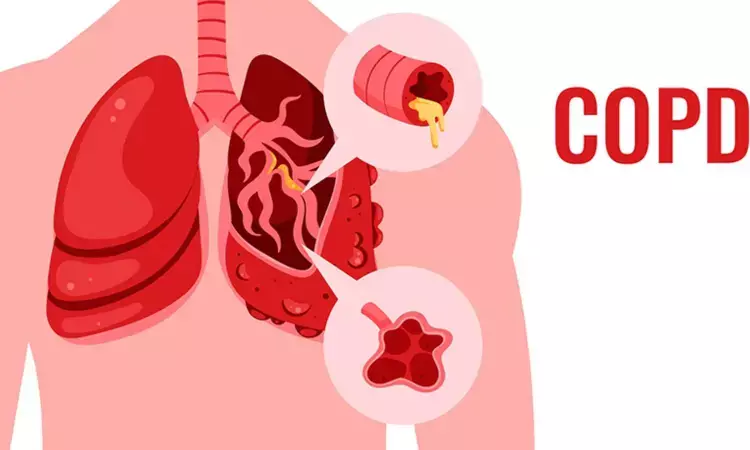- Home
- Medical news & Guidelines
- Anesthesiology
- Cardiology and CTVS
- Critical Care
- Dentistry
- Dermatology
- Diabetes and Endocrinology
- ENT
- Gastroenterology
- Medicine
- Nephrology
- Neurology
- Obstretics-Gynaecology
- Oncology
- Ophthalmology
- Orthopaedics
- Pediatrics-Neonatology
- Psychiatry
- Pulmonology
- Radiology
- Surgery
- Urology
- Laboratory Medicine
- Diet
- Nursing
- Paramedical
- Physiotherapy
- Health news
- Fact Check
- Bone Health Fact Check
- Brain Health Fact Check
- Cancer Related Fact Check
- Child Care Fact Check
- Dental and oral health fact check
- Diabetes and metabolic health fact check
- Diet and Nutrition Fact Check
- Eye and ENT Care Fact Check
- Fitness fact check
- Gut health fact check
- Heart health fact check
- Kidney health fact check
- Medical education fact check
- Men's health fact check
- Respiratory fact check
- Skin and hair care fact check
- Vaccine and Immunization fact check
- Women's health fact check
- AYUSH
- State News
- Andaman and Nicobar Islands
- Andhra Pradesh
- Arunachal Pradesh
- Assam
- Bihar
- Chandigarh
- Chattisgarh
- Dadra and Nagar Haveli
- Daman and Diu
- Delhi
- Goa
- Gujarat
- Haryana
- Himachal Pradesh
- Jammu & Kashmir
- Jharkhand
- Karnataka
- Kerala
- Ladakh
- Lakshadweep
- Madhya Pradesh
- Maharashtra
- Manipur
- Meghalaya
- Mizoram
- Nagaland
- Odisha
- Puducherry
- Punjab
- Rajasthan
- Sikkim
- Tamil Nadu
- Telangana
- Tripura
- Uttar Pradesh
- Uttrakhand
- West Bengal
- Medical Education
- Industry
Echocardiography may predict Adverse Outcomes in COPD Patients

Cardiovascular diseases often accompany chronic obstructive pulmonary disease (COPD), making their evaluation and management crucial in the overall care of COPD patients. A recent study presented at ATS 2023, the international conference of the American Thoracic Society, and published in the American Journal of Respiratory and Critical Care Medicine by a team of researchers led by Rizzatti F. P. G.highlights the importance of echocardiography in predicting adverse outcomes in COPD patients.
The study enrolled 35 COPD patients with preserved left ventricular ejection fraction (LVEF) and conducted spirometry, transthoracic echocardiogram (TTE), and clinical examinations as part of the study protocol. The objective was to identify factors on echocardiography that could serve as predictors of adverse outcomes, including hospitalization, non-fatal cardiac events, and mortality. The study followed the patients for one year.
● During the study period, adverse outcomes were observed in 10 patients, and several echocardiographic parameters were found to be associated with these outcomes.
● COPD patients with a right ventricular diastolic diameter greater than 38 mm had a predictive accuracy of 73%, as indicated by the area under the receiver operating characteristic (ROC) curve.
● This finding suggests that a right ventricle diameter above 38 mm is an independent predictor of adverse outcomes.
● Lower LVEF and lower functional vital capacity (FVC) were also associated with increased risk.
The study emphasizes the prognostic value of echocardiography in COPD patients and supports the recommendation that all patients with stable COPD should undergo echocardiographic evaluation to determine prognosis. Identifying COPD patients with a higher risk of adverse outcomes through echocardiography allows for targeted interventions and closer monitoring, potentially leading to improved management and outcomes.
These findings reinforce the importance of a comprehensive approach to managing COPD, which includes assessing and addressing comorbidities such as cardiovascular diseases. By incorporating echocardiography into the routine evaluation of COPD patients, healthcare professionals can gain valuable insights into the cardiac function and structural changes that may impact disease progression and prognosis.
Further research is needed to explore the underlying mechanisms linking echocardiographic parameters, such as right ventricular diastolic diameter, to adverse outcomes in COPD patients. By advancing our understanding of these associations, healthcare providers can refine risk stratification strategies and implement personalized treatment plans to optimize the care and outcomes of individuals living with COPD.
Reference:
Rizzatti, F. P. G., Faria, R. A., Goulart, C. L., Marinho, R. S., Firmino, S. M., Mendes, R. G., Borghi, A., & Roscani, M. G. (2023). Right ventricle diastolic diameter can be used as a predictor of adverse outcomes in COPD patients. A24. COPD PHENOTYPES: LOOKING OUTSIDE THE LUNG.
Dr Kamal Kant Kohli-MBBS, DTCD- a chest specialist with more than 30 years of practice and a flair for writing clinical articles, Dr Kamal Kant Kohli joined Medical Dialogues as a Chief Editor of Medical News. Besides writing articles, as an editor, he proofreads and verifies all the medical content published on Medical Dialogues including those coming from journals, studies,medical conferences,guidelines etc. Email: drkohli@medicaldialogues.in. Contact no. 011-43720751


